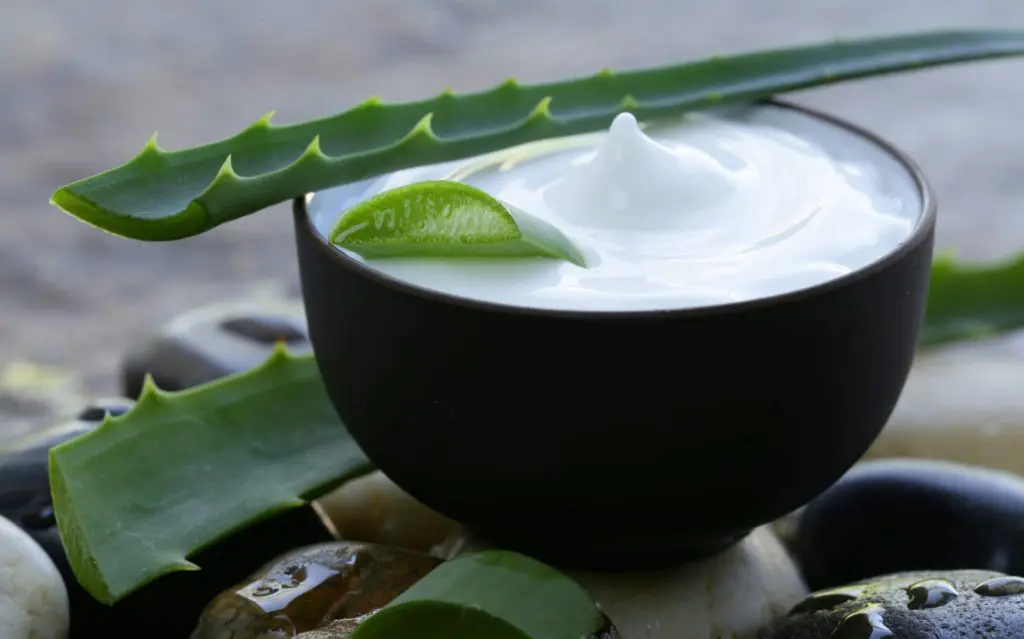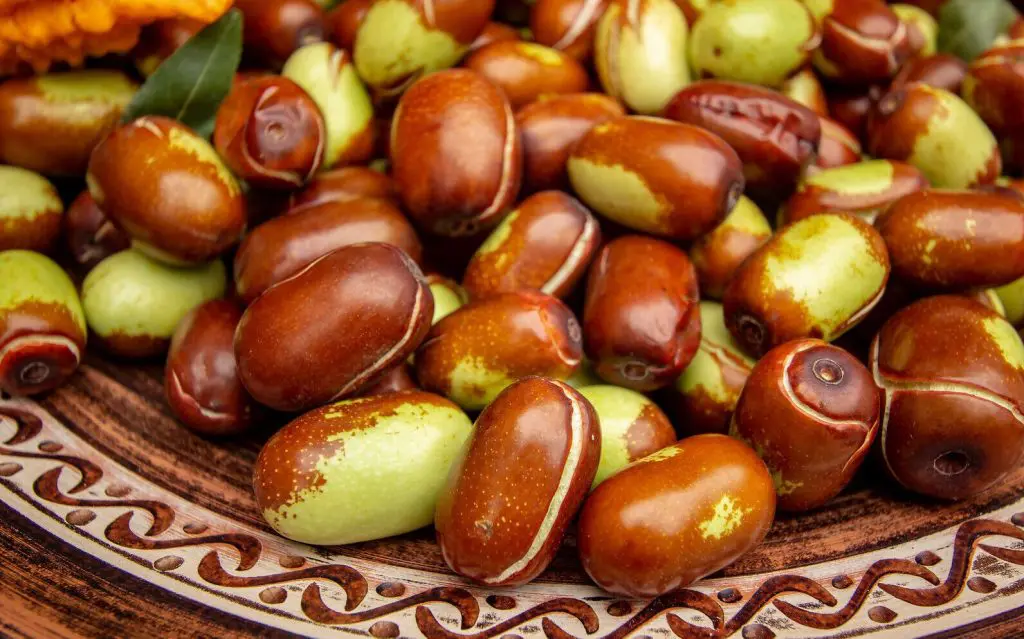Sea buckthorn has been used for centuries in traditional medicine and skincare, particularly in Asia and Europe. Its benefits are numerous, and it has been shown to be a powerful natural ingredient in skincare formulations. In this article, we’ll explore the properties, functions, features, and benefits of sea buckthorn in natural skincare, as well as the different forms it comes in and its suitability for different skin types.
Properties And Functions Of Sea Buckthorn
Sea buckthorn (Hippophae rhamnoides) is a plant that grows in the Himalayan regions of China, Mongolia, and Russia, as well as in northern Europe. The plant has been used for centuries for its medicinal properties, particularly in Ayurvedic and Traditional Chinese Medicine. The fruit of the sea buckthorn plant is a rich source of vitamins, antioxidants, and essential fatty acids, making it an ideal ingredient for skincare formulations.
Sea buckthorn contains over 190 biologically active compounds, including vitamins A, C, E, and K, flavonoids, carotenoids, and essential fatty acids such as omega-3, -6, and -9. These compounds work together to provide a wide range of benefits for the skin, including anti-inflammatory, anti-aging, and moisturizing properties.
Sea buckthorn oil is particularly rich in essential fatty acids, which are important for maintaining healthy skin. These fatty acids help to strengthen the skin’s natural barrier, which can become weakened due to exposure to environmental stressors such as pollution, UV radiation, and harsh weather conditions. By strengthening the skin’s natural barrier, sea buckthorn oil helps to lock in moisture and prevent the loss of hydration, which can lead to dryness and dehydration.

Benefits Of Sea Buckthorn In Skincare
The benefits of sea buckthorn in skincare are numerous. Here are some of the key benefits:
Anti-inflammatory properties:
Sea buckthorn contains a high concentration of antioxidants, including vitamins C and E, which help to neutralize free radicals and protect the skin from oxidative stress. In addition, sea buckthorn contains anti-inflammatory compounds, which help to reduce inflammation and redness in the skin.
Anti-aging properties:
Sea buckthorn contains a high concentration of vitamin C, which is essential for the production of collagen. Collagen is a protein that gives the skin its structure and elasticity. As we age, our bodies produce less collagen, which can lead to fine lines, wrinkles, and sagging skin. By promoting collagen production, sea buckthorn helps to reduce the signs of aging and improve the skin’s overall texture and tone.
Moisturizing properties:
Sea buckthorn oil is rich in essential fatty acids, which help to lock in moisture and prevent the loss of hydration. This makes it an ideal ingredient for dry and dehydrated skin, as well as for skin that is exposed to harsh weather conditions.
Healing properties:
Sea buckthorn has been shown to have healing properties, particularly for damaged or irritated skin. It contains a high concentration of vitamin E, which helps to promote skin healing and regeneration.
Brightening properties:
Sea buckthorn contains a high concentration of vitamin C, which has been shown to have brightening properties. By promoting collagen production and reducing the appearance of dark spots and hyperpigmentation, sea buckthorn can help to improve the skin’s overall radiance and glow.
Remember to always research your ingredients first and check for any contraindications that might mean they are not suitable for you to use. Also, always patch test new ingredients and products and to consult with a skincare professional if you have any concerns or questions about your skincare routine.

What Type Of Sea Buckthorn Can You Use in Skincare?
Sea buckthorn is available in several different forms, including oil, CO2 extract, and powder. Each form has its own unique properties and benefits.
Sea Buckthorn Oil:
Sea buckthorn oil is extracted from the fruit and seeds of the sea buckthorn plant. It is rich in essential fatty acids, including omega-3, -6, and -9, making it an ideal ingredient for skincare formulations. The oil is easily absorbed by the skin, making it a great option for those with dry or dehydrated skin. It also has anti-inflammatory and healing properties, making it suitable for those with sensitive or damaged skin.
Sea Buckthorn CO2 Extract:
Sea buckthorn CO2 extract is a concentrated form of sea buckthorn oil. The CO2 extraction process is a gentle method that preserves the plant’s nutrients and bioactive compounds. The resulting extract is highly concentrated, making it a potent ingredient for skincare formulations. Sea buckthorn CO2 extract is particularly beneficial for mature or aging skin, as it has strong anti-aging and regenerative properties.
Sea Buckthorn Powder:
Sea buckthorn powder is made by grinding the dried berries of the sea buckthorn plant into a fine powder. The powder is high in antioxidants, vitamins, and minerals, making it an ideal ingredient for skincare formulations. Sea buckthorn powder is often used in face masks and scrubs, as it helps to brighten and exfoliate the skin.
What Skin Type Is Sea Buckthorn Suitable For?
Sea buckthorn is suitable for all skin types, but it is particularly beneficial for dry, dehydrated, and aging skin. The essential fatty acids in sea buckthorn oil help to lock in moisture and prevent the loss of hydration, making it an ideal ingredient for those with dry or dehydrated skin. The anti-aging properties of sea buckthorn also make it a great option for mature or aging skin.
Sea buckthorn is also suitable for sensitive and irritated skin, as it has anti-inflammatory and healing properties. The vitamin E in sea buckthorn oil helps to promote skin healing and regeneration, making it an ideal ingredient for those with damaged or irritated skin.
We wrote a series of articles about different skin types that might be of interest to you, especially considering Sea Buckthorn is suitable for dry, dehydrated, sensitive, mature and aging skin.
You can find an article about dry skin here, sensitive skin here and mature or aging skin here.
What Skincare Products Can I Use Sea Buckthorn In?
Sea buckthorn is a popular ingredient in a wide range of skincare products, including:
Face oils:
Sea buckthorn oil is a popular ingredient in facial oils, as it is easily absorbed by the skin and helps to lock in moisture. It also has anti-inflammatory and healing properties, making it suitable for sensitive or irritated skin.
Balms:
Sea Buckthorn might get overlooked in products like balms and butters, but if you are looking for a healing balm with rich ingredients to moisturize and protect the skin, Sea Buckthorn Oil is a wonderful oil to use. Below is an image of one of our Moisturizing Balms with Sea Buckthorn.
Moisturizers:
Sea buckthorn is often used in moisturizers, as it helps to hydrate and nourish the skin. The essential fatty acids in sea buckthorn oil help to strengthen the skin’s natural barrier, preventing moisture loss and promoting hydration.
Face masks:
Sea buckthorn powder is a popular ingredient in face masks, as it helps to exfoliate and brighten the skin. The powder is high in antioxidants and vitamins, making it a great option for those looking to improve the overall health and radiance of their skin.
Serums:
Sea buckthorn is often used in serums, as it has anti-aging and regenerative properties. The vitamin C in sea buckthorn helps to promote collagen production, reducing the appearance of fine lines and wrinkles.

Considerations and Contraindications
While sea buckthorn is generally considered safe for use in skincare products, there are some considerations and contraindications to keep in mind.
Strong color and aroma:
Sea Buckthorn is bright orange and using it can mean that the color of your products is a little on the orange side. It can also have quite a strong aroma, so do check this before using it to make sure you are happy.
Allergic reactions:
While rare, some people may be allergic to sea buckthorn. It is always important to patch test any new skincare products before using them on your face or body.
Sensitivity to sunlight:
Sea buckthorn oil may increase sensitivity to sunlight, so it is important to wear sunscreen when using products that contain sea buckthorn.
Pregnancy and breastfeeding:
While sea buckthorn is generally considered safe for use during pregnancy and breastfeeding, it is always important to consult with a healthcare professional before using any new skincare products during this time.
Use with caution on oily or acne-prone skin:
While sea buckthorn oil is suitable for most skin types, those with oily or acne-prone skin may want to use it with caution. Sea buckthorn oil is high in oleic acid, which can be comedogenic and may contribute to breakouts for some individuals.
Storage:
Sea buckthorn oil and CO2 extract should be stored in a cool, dark place to prevent oxidation and rancidity.
Can be heat sensitive:
If you are using Sea Buckthorn Oil, it would be best not to heat the oil as it is likely to be heat sensitive. There are 2 types of oil, the one extracted from the fruit (which is not heat sensitive) and the one extracted from the seeds (which is heat sensitive) . If it is not clear which oil you have or if it is oil that has been extracted from both, then we would recommend you treat it as a heat sensitive oil, and add it to the cool down phase of an emulsion.

How To Formulate Your Natural Skincare Products With Sea Buckthorn
Sea buckthorn is a versatile and beneficial ingredient for natural skincare. Its high content of essential fatty acids, vitamins, and antioxidants make it an ideal ingredient for moisturizing, anti-aging, and regenerative skincare products. Sea buckthorn oil, CO2 extract, and powder are all popular forms of this ingredient, each with their own unique properties and benefits.
While sea buckthorn is generally suitable for all skin types, it is important to be aware of any potential contraindications and to patch test new products before use. Overall, incorporating sea buckthorn into your skincare routine can help to improve the health, hydration, and radiance of your skin.
Sea Buckthorn is an ingredient we enjoy using in our products and you’ll find it in some of our example formulations inside our online courses. You can learn to work with Sea Buckthorn, and other more specialist ingredients and extracts, by joining our Diploma in Natural Skincare Formulation. Whether you want to formulate your own products to sell or just for yourself, family and friends, this course has you covered.
To find out more about the Diploma in Natural Skincare Formulation (and to enroll), just visit the course page on our website here. You can also download a copy of the course prospectus here. If you have any questions, please do email our customer service team using [email protected]
Free Guide
The Beginner's Guide to Formulating Natural Skincare Products (From scratch, like a professional!)
Start creating your own natural skincare products from scratch – rather than simply following recipes!
Learn how to formulate like a pro and discover our top tips for becoming a confident skincare formulator.

Exclusive for our newsletter subscribers. Sign up now.
We look after your data in accordance with our privacy policy.
Download this fabulous guide and you’ll learn:
- What formulating is and why you need to be doing it!
- The difference between following recipes and formulating your own products.
- Our step-by-step process to designing products people love.
- Four easy ways to personalize your skincare products.
- Choosing the right carrier oils for your beauty products.
- Plus, you’ll get our Safe Product Checklist: How to make sure the skincare products you make are safe and stable



